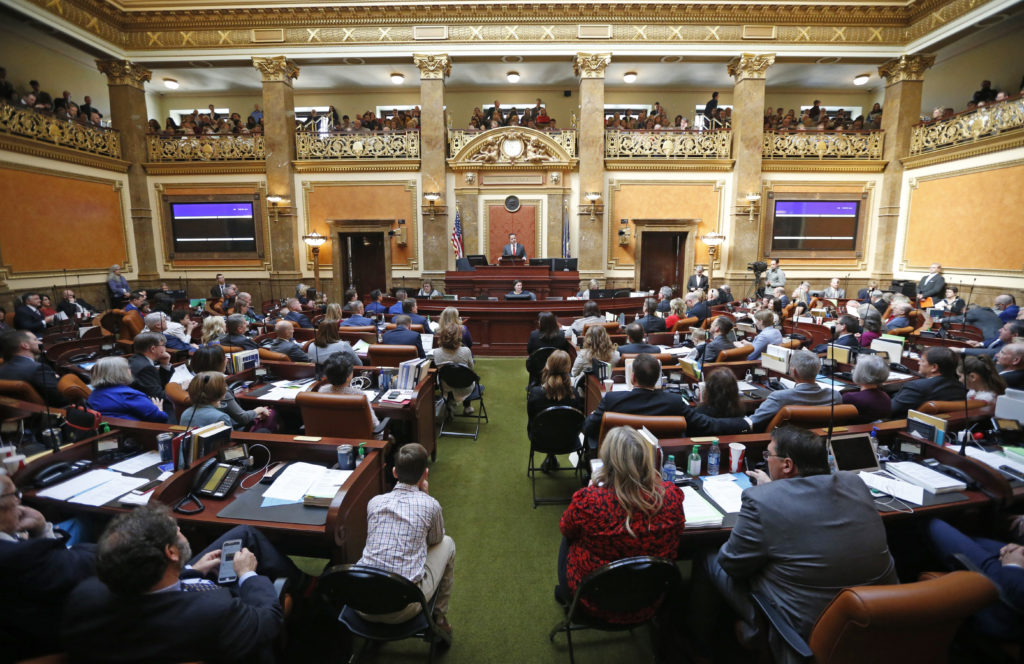
The Utah 2020 General Legislative Session is scheduled to begin Monday, Jan. 27, 2020. Issues Utahn’s should be aware of include infrastructure, tax reformation and environmental policy.
Utah lawmakers will meet for the annual 45-day session to discuss issues affecting residents’ quality of life. The Utah legislature is composed of 104 seats — 29 senators and 75 representatives.
Richard Thorn, president of Associated General Contractors of Utah, the leading association for the commercial construction industry in the state, frequently deals with legislative work to ensure Utah construction projects are up to code. Those associated with the Associated General Contractors of Utah are required to stay up to date on the legislation affecting the construction industry.
“There are approximately a thousand pieces of legislation that are introduced in the Senate and House each year,” Thorn said.
A major topic during the upcoming session will be Utah infrastructure. As the fourth-fastest growing state in America, Utah is experiencing infrastructural growing pains. Thorn is optimistic that the state legislature will be able to come up with solutions to these growing pains.
“Utah is positioned extraordinarily well for future growth; our economy is on solid ground, and I believe the Utah legislature is investing in the future,” Thorn said.
As the Utah population grows, tax reform proposals are being brought to the table. A tax reform bill drafted by the Tax Restructuring and Equalization Task Force; Co-Chairmen Lyle Hillyard, R-Logan; and House Majority Leader Francis Gibson, R-Mapleton, calls for dropping the state income tax rate to 4.58% while raising sales taxes on food, gas and other services.
However, the bill does not confront an issue being presented by Republican legislative leaders to amend the Utah Constitution by removing the earmark on income tax revenues for education while simultaneously creating an alternative source of funding.
Utah residents showed concern at a public meeting at the Capitol on Nov. 7, telling legislatures that the proposed tax reform bill includes cuts that would be made to income taxes without a new plan for paying for schools and improving the quality of education.
Utah Senate President Stuart Adams said the goal with tax reform issues is to get it right to stabilize Utah’s economy for years to come.
“We are working towards a comprehensive solution to stabilize the state budget in a way that benefits all Utahns,” Adams said.
As tax reform influences the allocated budget for education, Hillyard said the quality of education among Utah children is most important, although there has yet to be a new funding plan presented.
Hillyard said there are many issues that feed into the topic of education, such as funding for school counselors, concern about teacher salaries and ensuring kids are prepared before entering the next grade. Adams said he believes the topic of education will be an interesting discussion in the 2020 session.
“Education is a large component — from K-12 educational programs to apprenticeships to innovative education models. Utah can and should lead the nation,” Adams said.
Another area where the Utah legislature will direct its attention this session is Utah’s environment. This includes consideration for a Tier 3 system of national vehicle-and-fuel standards established by the EPA. This system will require Utah to become clean by pushing for cars that cause less pollution and make it possible for petroleum refiners to create a clean solution for gasoline.
Rep. Stewart Barlow, R-Fruit Heights, said the growing pains that come from a rapidly growing population and better environmental standards will help ensure a clean Utah for future residents.
“These (Tier 3) standards will benefit Utah’s environment and incentivize companies to upgrade their fuels,” Barlow said.
Another discussion that will affect Utah’s economic and environmental health is the Utah Inland Port. Protestors worry it will cause damage to Utah’s environment, while port authorities have addressed protestors’ concerns by implementing 21st-century technologies to reduce, if not eliminate, environmental impacts.
To stay updated on these and other topics within the legislature, Hillyard recommends visiting le.utah.gov to see legislative web pages, bills and the final decisions.




